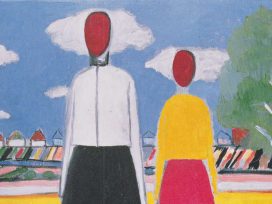In recent decades, the deadly potential inherent in neighbourly relations has become more and more obvious: the Basque conflict, Belfast, Israel-Palestine… In the former Yugoslavia, we could see how seemingly peaceful neighbourly co-existence developed into full-scale civil war. Shocked by the apparently sudden outburst of violence, we ask what makes people cease to define themselves as inhabitants of the same street and instead as belonging to different and opposing (ethnic, social, religious) groups. But we tend to forget that the borders inside and outside the neighbourhood are constantly redrawn, and that conflicts (and in most cases their regulation) are part and parcel of everyday life among neighbours. Every neighbourhood has its groups and its history.
The notion of “neighbourhood” thus brings with it the notion of “borders”. These two concepts in combination are strongly present in contemporary European cultural and political discussion: Where are the borders of Europe? Is it at all meaningful to draw such demarcation lines? Inside the European Union, where international borders seem to disappear, traces of the old divisions and hostilities persist in people’s memories and identities. Fifteen years after the fall of the Iron Curtain, neighbouring countries still have little interest in each other.
Even if every neighbourly relation – in the staircases and gardens of apartment houses as well as in international politics – seems to carry with it a potential conflict, the neighbourhood is also a place for exchange and solidarity. “Neigbourhoods”, the theme of the 18th European Meeting of Cultural Journals held in Istanbul in November 2005, provides an opportunity to discuss these questions on historical, theoretical, and practical levels.






